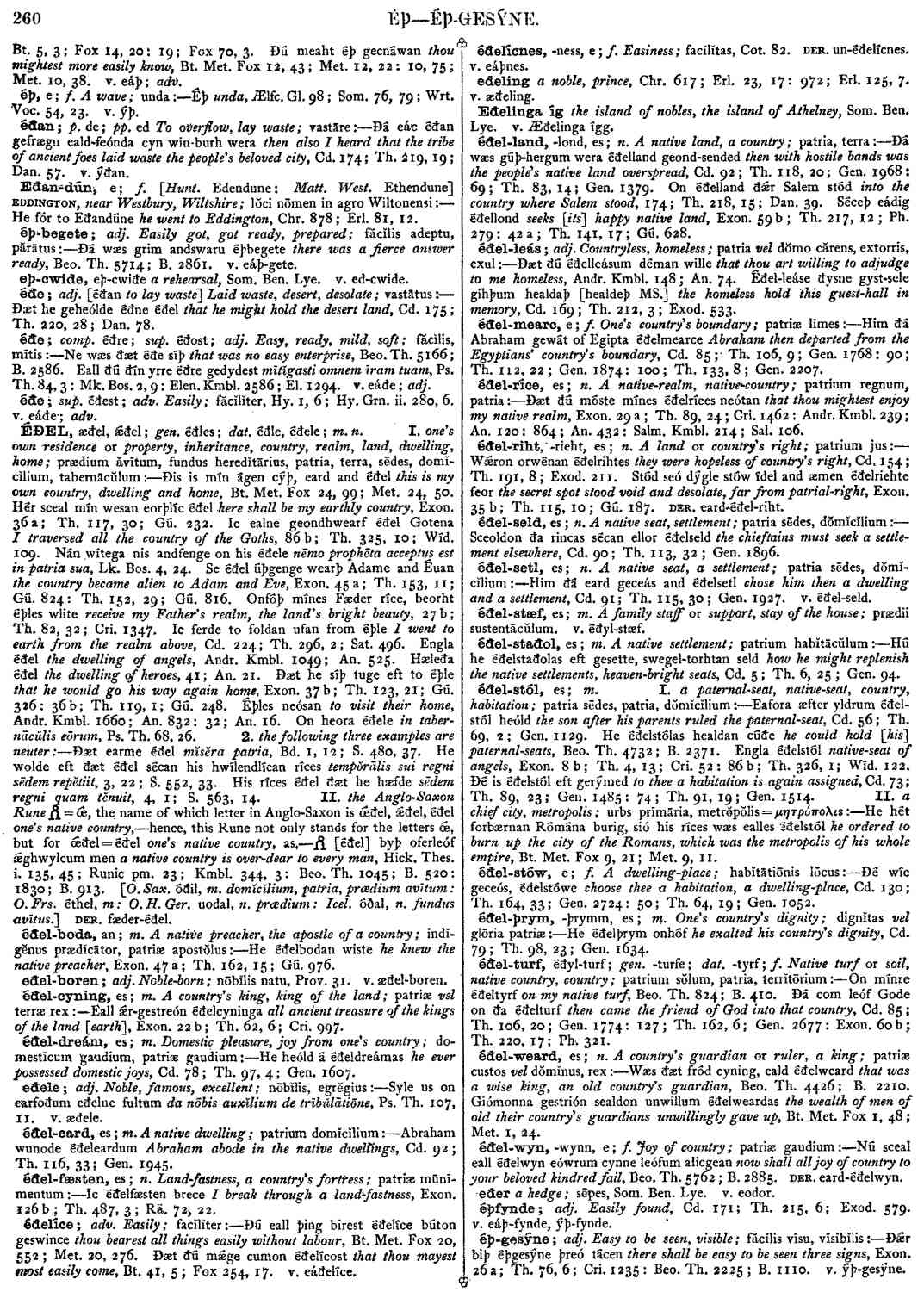éðel-stól
- noun [ masculine ]
-
Eafora æfter yldrum éðel-stól heóld
the son after his parents ruled the paternal-seat.
- Cd. 56 ;
- Th. 69, 2;
- Gen. 1129 .
-
He éðelstólas healdan cúðe
he could hold [his] paternal-seats.
- Beo. Th. 4732 ;
- B. 2371 .
-
Engla éðelstól
native-seat of angels,
- Exon. 8 b ;
- Th. 4, 13;
- Cri. 52: 86b ;
- Th. 326, 1;
- Wíd. 122 .
-
Ðé is éðelstól eft gerymed
to thee a habitation is again assigned,
- Cd. 73 ;
- Th. 89, 23;
- Gen. 1485: 74 ;
- Th. 91, 19;
- Gen. 1514 .
-
He hét forbærnan Rómána burig, sió his ríces wæs ealles éðelstól
he ordered to burn up the city of the Romans, which was the metropolis of his whole empire.
- Bt. Met. Fox 9, 21;
- Met. 9, 11.
Bosworth, Joseph. “éðel-stól.” In An Anglo-Saxon Dictionary Online, edited by Thomas Northcote Toller, Christ Sean, and Ondřej Tichy. Prague: Faculty of Arts, Charles University, 2014. https://bosworthtoller.com/9786.
Checked: 1